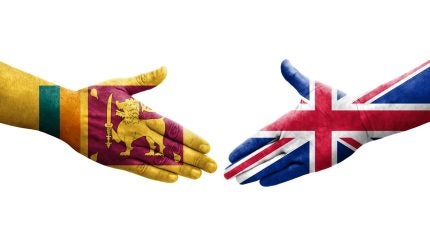
Set to be implemented in early 2026, the DCTS introduces a more liberal approach to rules of origin, which is expected to significantly benefit the textile and apparel sector.
In a notable reform, the UK has decided to merge and enlarge current regional cumulation groups within Asia, forming a new Asia Regional Cumulation Group that will encompass 18 countries. This group is inclusive of Central Asian countries, Mongolia, and Timor Leste.

Discover B2B Marketing That Performs
Combine business intelligence and editorial excellence to reach engaged professionals across 36 leading media platforms.
For Sri Lankan garment manufacturers, this change means they can now source up to 100% of inputs from any global market while still enjoying zero-tariff entry into the UK.
This flexibility is an improvement over previous trade agreements as it minimises restrictions on processing and places Sri Lankan apparel on equal footing with countries that receive “Comprehensive Preferences” under the DCTS.
The UK is a crucial market for Sri Lanka’s apparel industry with apparel export in the country increasing by 20.4% to $67.33m in June 2025, as per JAAF.
These simplified rules are anticipated to bolster manufacturers’ ability to compete on an international scale. The reforms are also expected to facilitate diversification in sourcing strategies and ensure stable access to UK consumers.

US Tariffs are shifting - will you react or anticipate?
Don’t let policy changes catch you off guard. Stay proactive with real-time data and expert analysis.
By GlobalDataJAAF secretary general Yohan Lawrence said: “This reform is a timely recognition of Sri Lanka’s role as a resilient and responsible sourcing destination. By removing restrictions on input sourcing, the UK has levelled the playing field for our manufacturers, giving them the flexibility to deliver greater value to global brands and UK consumers alike. We see this as an opportunity to expand trade, strengthen industry competitiveness, and secure more jobs and livelihoods across Sri Lanka’s apparel sector.”
The advocacy efforts by the UK High Commission, Sri Lanka’s Department of Commerce, and local industry stakeholders have been acknowledged by JAAF as instrumental in facilitating this change. The updated rules are poised to increase exports, enhance operational efficiency, and reinforce the longstanding trade relationship between Sri Lanka and the UK.
Sri Lanka’s apparel industry stands as the nation’s top export contributor, directly employing over 350,000 individuals and indirectly supporting over a million people within its supply chain.
In June this year, the country saw a 5.2% increase in apparel exports hitting $439.39m against the previous year’s figure of $417.71m.
Liberalised trade measures such as the DCTS are pivotal in ensuring that this sector remains a key driver of economic recovery and sustained growth for the country, JAAF said.





